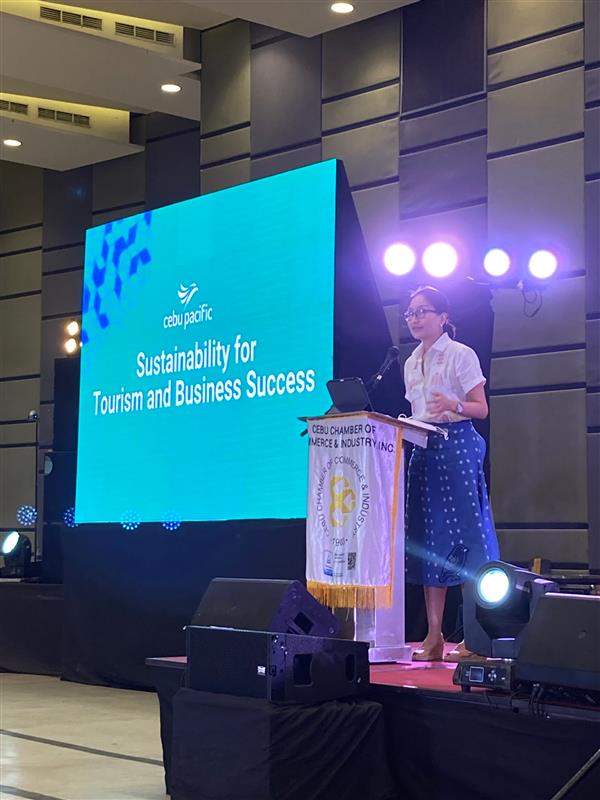After participating early this year in the Singapore Airshow as Asia’s greenest airline, CEB has established three major pillars on its sustainable journey which are fleet modernization, which aims, among others, to have an all-Neo fleet; resource optimization, which includes pushing for fuel efficiency best practices; and utilizing SAF by launching green routes by 2025 and using SAF for its entire network by 2030.
Cebu Pacific (CEB), the Philippines’ leading airline, is committed to invest in more sustainability initiatives to boost the stability of its operations and care for the environment and planet at the same time.

CEB which currently operates the greenest aircraft in the aviation industry, the A330NEO – is aligning its sustainability goals with the global aviation’s commitment to achieve net zero carbon emissions by 2050.
CEB was the first local airline to incorporate the use of SAF in its operations.
“Cebu Pacific is committed to invest time and resources to be the greenest airline in Asia and one of the greenest in the world. We conduct our business in an ethical manner, with the welfare of our employees, the community, and the environment in mind,” said Cebu Pacific Vice President for Marketing and Customer Experience Candice Iyog when she discussed sustainability in business and tourism at the Cebu Business Month Tourism Summit.
SAF is a “drop-in” replacement for fossil fuels, produced from renewable resources. The use of SAF results in an up to 85% reduction in carbon emissions across the SAF lifecycle. The chemical and physical characteristics of SAF are almost identical to those of conventional jet fuel and these can be safely mixed with regular jet fuel to varying degrees. SAF does not require any adaptations to the aircraft or engines and does not have any negative impact on performance or maintenance.
“As Cebu’s namesake, we have this great sense of responsibility as we realign, reinforce, and rebuild tourism that we do this mindfully and sustainably as stewards of this planet we all share,” Iyog said.
“It has always been Cebu Pacific’s core purpose to give back to the community,” Iyog added.
Throughout 2021, CEB flew over 648 tons of humanitarian items for free to support distribution of essential food and medical supplies to different destinations.
To date, Cebu Pacific has distributed over 76 million COVID-19 vaccine doses to over 31 provinces in the country.
In partnership with both public and private organizations, CEB was the first airline to respond to the victims of Typhoon Odette which battered a large part of Visayas-Mindanao area.
“We have to widen our net to involve our tourism ecosystem, while at the same time, building culture internally in the company so it becomes part of everyJuan’s everyday life,” she said.
CEB transported over 336 tons of humanitarian and disaster relief across the Philippines.
Iyog said that Cebu Pacific firmly believes that no one can achieve a sustainable business alone.